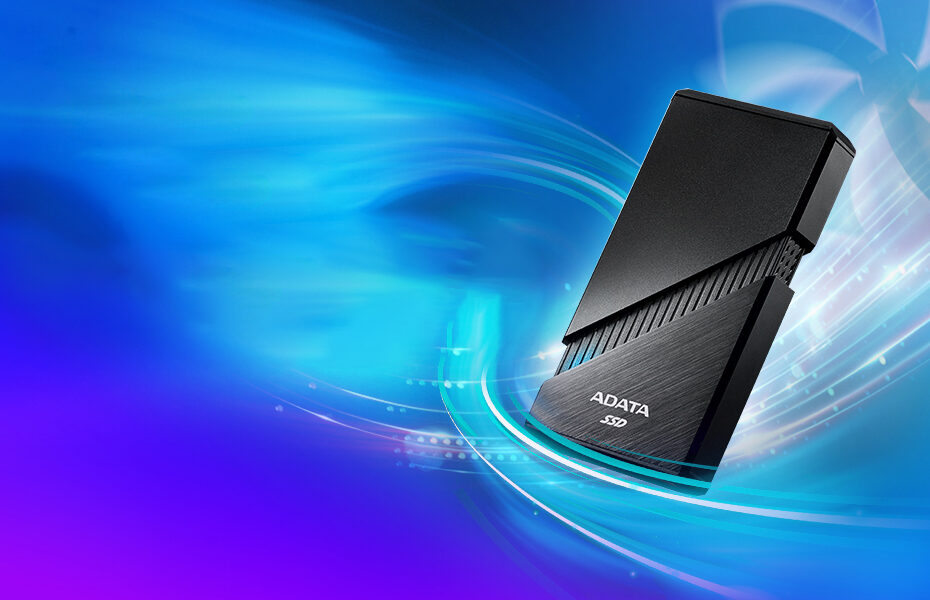The demand for transferring large, high-quality files has grown, partly due to the rise in AI computing. To align with EU regulations, USB4 is becoming the standard for a new generation of devices, facilitating quick file transfers between various devices. In response, ADATA has introduced its first USB4 SE920 external SSD. This device supports Thunderbolt 3 & 4 and is backward compatible with USB 3.2 and USB 2.0, offering speeds of up to 3,800 MB/s. It features a Type-C interface, suitable for transferring large multimedia files and exporting videos from mobile phones.
The SE920 external SSD includes a spring-loaded chassis and built-in fan for heat dissipation. When the chassis is extended, the fan activates, increasing air circulation and reducing heat. This design reportedly lowers temperatures by 10% compared to similar fanless products, ensuring stable data transmission. The retractable chassis makes the device portable.
The SE920’s USB4 interface allows it to transfer a 10GB 4K video file in about 3 seconds. It’s compatible with various operating systems and platforms, including Android, Mac OS, and Windows, and can be connected to game consoles to enhance game library capacity and loading speeds.
In addition to the SE920, ADATA has released the SD620 and SC610 external SSDs. The SD620, available in black, blue, and red, features MIL-STD drop and shock resistance up to 1.22 meters and a transfer speed of up to 520MB/s. The SC610, designed for portability, resembles a flash drive and includes a slide-out connector, eliminating the need for a transfer cable. It offers transfer speeds up to 550/500MB per second. These products are available for purchase through global channels. More information can be found on ADATA’s website.

Gladstone is a tech virtuoso, boasting a dynamic 25-year journey through the digital landscape. A maestro of code, he has engineered cutting-edge software, orchestrated high-performing teams, and masterminded robust system architectures. His experience covers large-scale systems, as well as the intricacies of embedded systems and microcontrollers. A proud alumnus of a prestigious British institution, he wields a computer-science-related honours degree.
